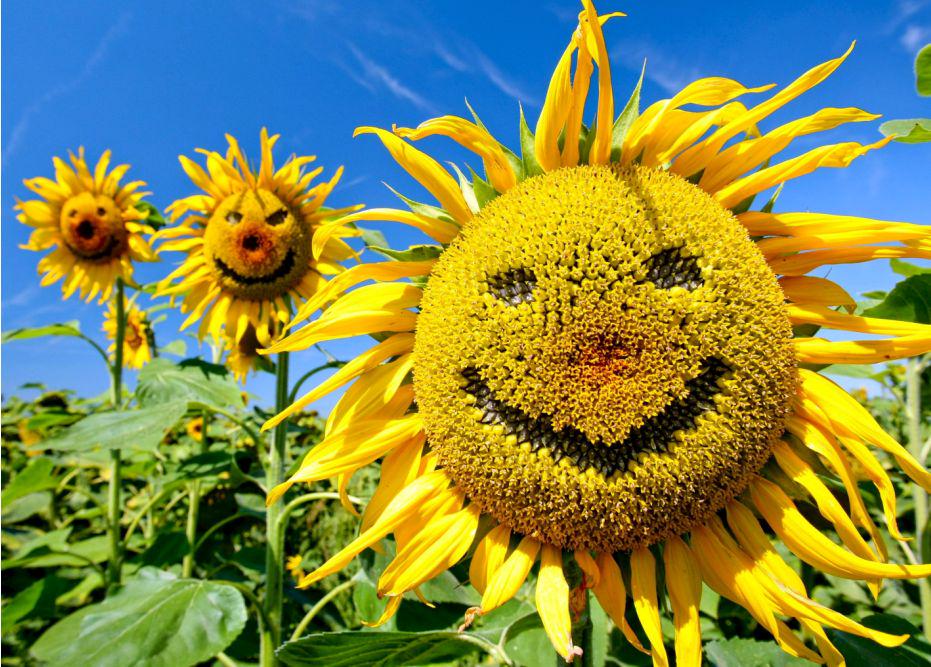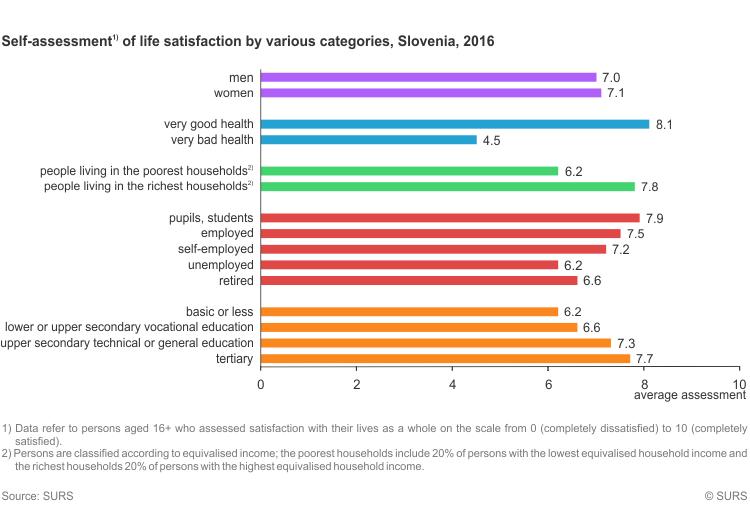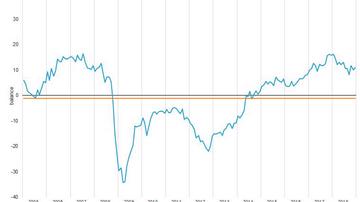
Healthy people are much more satisfied with their lives than those who have health issues. Tertiary educated people are more satisfied than less educated people, and pupils and students more than the employed, unemployed and retired. There are, however, no major differences between men and women.
20 March was declared the International Day of Happiness by the United Nations General Assembly on 12 July 2012, so that this year the day will be observed for the sixth time. On this occasion SURS is publishing some interesting data on happiness and life satisfaction.
Whether a person feels happy or not depends on many factors. Much – but by no means everything – can be explained by the economic situation in the country. The feeling of happiness namely does not depend only on well-being in the country or the financial situation of the household or individual, but also on health, labour market situation, etc.
In 2013 the shares of persons who were in the last four weeks before the survey happy all the time or most of the time differed quite a lot among countries. In Slovenia the share was slightly above the EU-28 average. The share was the lowest in Latvia and Greece (just over 30%) and the highest in Iceland and the Netherlands (over 80%).
Consumers have never been more optimistic
SURS measures subjective satisfaction of consumers with some financial indicators in the monthly Consumer Survey. According to the latest data people in Slovenia are much more satisfied than in the past since in January 2018 the consumer confidence indicator was at the record level of 2; the long-term average since 2005 was −20 (the indicator can have the value between −100 and 100).
Happiness and life satisfaction
Happiness and life satisfaction are closely connected. Life satisfaction largely depends on the individual’s preferences and expectations.
The life satisfaction indicator is a multi-dimensional concept. It has been measured by SURS since 2012. Satisfaction almost doesn’t differ in view of the gender, but depends greatly on health, financial situation of the individual, labour market situation, education, etc. The data indicate that life satisfaction mostly depends on the health status of respondents.
The data show that satisfaction changes only slightly over time. The most recent comparable data on life satisfaction at the EU-28 level are for 2013. At that time Slovenia was at the EU-28 average of 7.0. People were the least satisfied with their lives in Bulgaria (4.8) and the most satisfied in Denmark and Finland (8.0).
What is happiness?
Happiness can be defined in several ways. One of the most general, rather philosophical definitions is that happiness is the state of complete satisfaction and the absence of any desire. According to the Dictionary of Standard Slovenian Language, happiness is, among other things, 1) relatively permanent state of great mental satisfaction and 2) coincidence, circumstance influencing a favourable outcome or course of something. In this release we focused on the first definition as the second one is usually about a short-term positive event (e.g. winning at a lottery) not necessarily making a person happy in the long run. A comparison of data shows that residents of countries who think they are happy all the time or most of the time are not always the most satisfied with the financial situation of their households and vice versa.
As regards the share of happy persons, in 2013 Slovenia was 12th, whereas as regards the average satisfaction with the financial situation of the household it was 18th.
At holidays and special events people almost always wish happiness to each other, but the data clearly show that people perceive happiness differently depending on external circumstances which they mostly cannot control but which have an impact on their lives and the perception of happiness.




































































